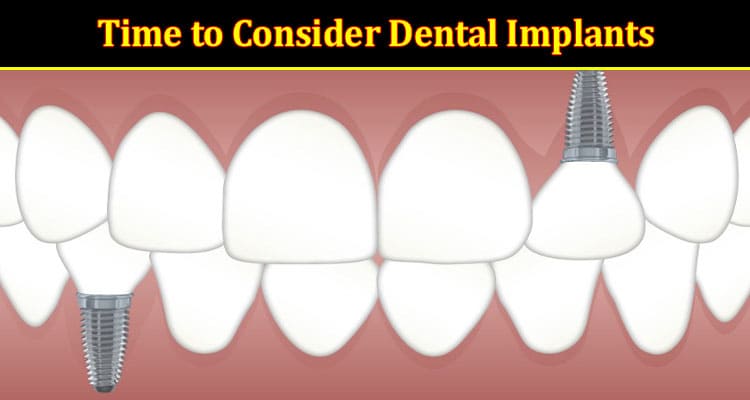Tooth loss could have serious consequences for your health, self-confidence and other aspects of your daily life. Fortunately, dentists have developed several options for replacing missing teeth all over the country. Whether visiting a dentist in Ocoee or an orthodontist in Sacramento, you’ll may want to discuss the advantages and drawbacks of your treatment options when you need a new tooth. Dental implants may offer the longest-lasting, most natural-looking solution. Unlike dentures, which may move, implants are securely anchored into the jawbone, functioning like natural teeth. Keep an eye out for the following signs that a dental implant may be right for you.
Difficulty Eating
Missing teeth often make it more difficult to enjoy your favorite meals. Pain or discomfort while eating could lead to nutritional issues as you struggle to eat a variety of foods. If you find yourself chewing on one side of your mouth, hesitating before taking a bite or avoiding certain foods altogether, dental implants could help. Implants offer about as much strength and stability as natural teeth, making it easier to chew. While you may have to change your diet during your healing process, implants could allow you to enjoy the foods you love again in the long term.
Changes to Your Face
If you’re missing several teeth, you may notice a more “sunken-in” look around your mouth and chin, even if you have dentures. That’s because our teeth actually play a central role in maintaining our facial structure. As we chew, our teeth’s roots stimulate the jawbone, which helps it maintain its density. Tooth loss disrupts that process, leading to bone and muscle loss in the jaw. In turn, the face sometimes collapses slightly, leading to a sunken look. Dentures and bridges don’t have roots that could build jaw density. Dental implants, however, have roots that exercise the jawbone, preventing bone loss. They could help maintain your face’s natural contours and contribute to a more youthful look.
Trouble Speaking
Trying to speak with missing teeth can be frustrating. Our teeth help us articulate certain words in ways most people don’t even notice. Front teeth, especially, make it possible to pronounce many consonant sounds. Fit issues or discomfort with dentures could also make speaking more difficult. Speech difficulties could hurt your professional and personal life, impacting your confidence. If missing teeth are making it harder to communicate, dental implants could help. Dental implants function like natural teeth, and once healed, should help people able to speak like they normally would with their natural teeth.
Dissatisfaction with Dentures or Bridges
Finally, dental implants may be a good option if other treatments haven’t met your needs. Dentures and bridges are great tools for many people. However, fit issues could cause inconvenience, discomfort and pain. You may not want the hassle of fussing with adhesives for dentures or cleaning and maintaining dental bridges. Or perhaps you just want a more permanent option that you don’t have to think about every day. Dental implants could last decades, especially if you maintain good dental hygiene. After healing, they should look, feel and behave like your natural teeth.
Tooth loss is a common health issue that could have a significant impact on your quality of life. Dental implants offer a long-lasting solution that could help you feel confident eating, speaking and showing off your smile again.

